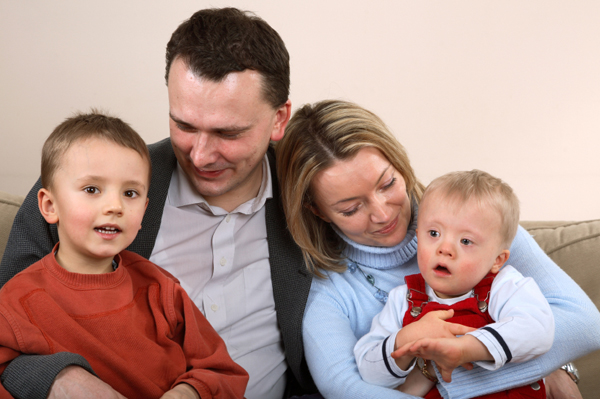I recently got an email from a mom who enjoys my newsletter but who sometimes feels left out because her child has special needs. While I do tend to offer guidelines about ages and stages of development I hope that every parent can adjust those guidelines to their particular child.
Children learn and develop differently and it’s not a competition, instead, each child is learning and growing at his own rate. Part of our job as parents, caregivers, and educators is to identify where a specific child is capable and comfortable, where he is challenged, and what’s next. You can do this with anyone, not just children, and it certainly applies to children who have special needs and different ways of learning.
In the Montessori schools I’ve worked at in the past we often had children who were diagnosed with ADD, ADHD, and learning disabilities. Luckily, the Montessori classroom is specifically designed to meet the needs of a wide range of abilities and interests. And, as a parent, you have a unique knowledge of who your child is and where her next challenge lies. Just by helping your child identify the next steps and challenges in her development, you’re teaching her skills for how to work with her unique brain and body to grow and learn. Every child has a desire to learn, grow, and contribute.
But if you’re a parent of a child who is on the autism spectrum you may feel confused about how to help your child and overwhelmed by conflicting information. I’m no expert on autism. But I do know that developing even more compassion for your child, having a greater understanding of your child’s autism and your particular situation, and reaching out for support from other people going through the same challenges will strengthen your bond with your child and help you weather any storm you may face.
If your child has physical challenges like blindness, deafness, challenges with movement, or medical issues there are often fun summer camps for kids in similar situations. One summer during college I worked at a camp for legally blind children that was funded by the state of New Jersey. Every child in New Jersey who’s legally blind is able to spend a week at the camp singing songs, doing art projects, swimming and boating and making friends (or at least that was the case in 1997). It was so much fun to experience the kids, some of whom were the only blind kid in their area, and many of whom felt ostracized in their home communities for having albinism, connecting, playing and having fun together. A summer camp is a great place to be reminded that there are other kids just like you.
I’m not sure I’ve been particularly helpful or insightful on this issue, but mostly I just want parents of kids with special needs to know that they are a valued part of our community. I want to include you and help you as much as I am able. So if you ever have a specific question about a situation you’d like some help with, please email me, schedule a complimentary introductory coaching session, or post your question as a comment at the end of this article. Perhaps some of the other parents here would even have a tip, suggestion, or similar experience to share.
Your conscious parenting challenge this week is to reach out and share about a challenging situation you’re experiencing with your child. Then, come up with a strategy to help your child develop new skills in that area. I would LOVE to hear all about it so please share in the comment box below.
And have a kind, caring, and connected week. Love, Shelly



I have a 4 year old blind child–are biggest challenge is working with some frustration he has when he can’t do something–I am not sure if this has to do with a developmental stage or his discovery of not seeing so well–or both. We get him to take a deep breath and try to use calmness and then try the activity again–not always with success…sometimes we have to go sit in front of the alter and calm don–it is a challenge at times–any suggestions? Thanks for all these insightful blogs. Nicole